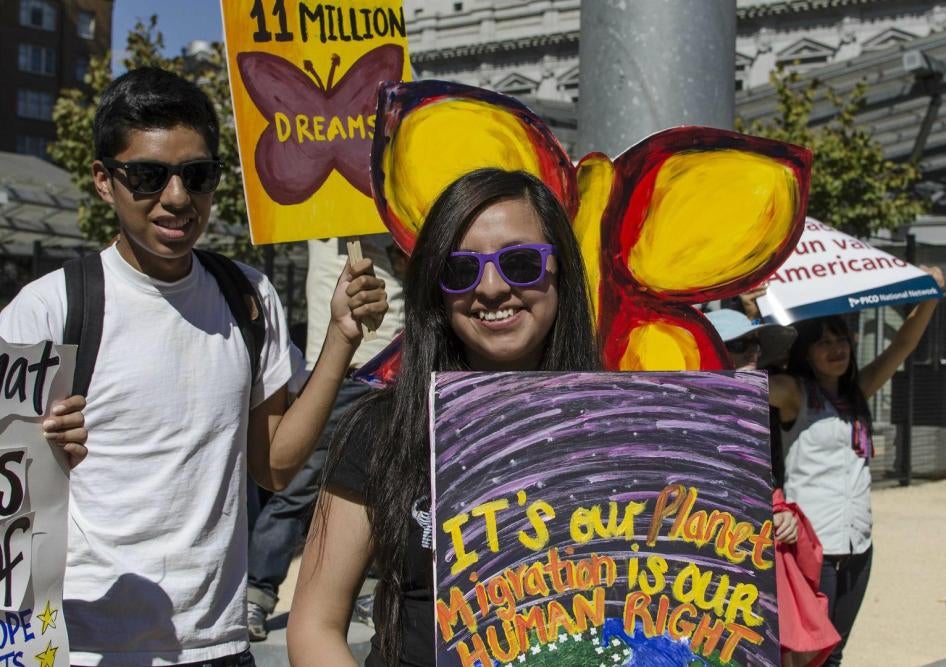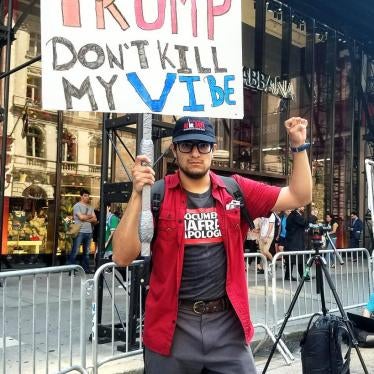The Trump Administration’s decision to end, in six-months, the Obama-era Deferred Action for Childhood Arrivals program that suspends deportation for children brought to the United States illegally, puts those young people on the legislative trading block. The delay is part of a move to pressure Congress to pass new legislation before DACA’s expiration on March 5, 2018.
Congress, get ready to do your job - DACA!
— Donald J. Trump (@realDonaldTrump) September 5, 2017
Announced by Attorney General Jeff Session today, Trump’s delay sets up a horse trade that pits the Dreamers against legal immigrants, including legally admitted refugees, under the Trump-backed RAISE Act, which aims to cut legal permanent immigration to the United States by half over the next decade. As the price for continuing some level of protection for the Dreamers, the “grand bargain” would also throw in funding for Trump’s border wall and more immigration detention facilities.
The problem: people are not horses.
DACA has shielded more than 785,000 young people in the United States from being deported, allowing them to work, go to school, and lead lives as normal as possible short of being able to legalize their immigration status. DACA is, at best, a temporary fix, an exercise in prosecutorial discretion. Importantly, it directs the enforcers of U.S. immigration law to go after bigger fish, such as people with criminal records. But it is not a permanent solution.
Trump’s end to the program may have been forced by a threatened lawsuit from a small group of Republican state attorneys general who gave him an ultimatum to shut down DACA by September 5. But while Trump has expressed qualms about deporting Dreamers in the past, he shows his hand in his willingness to abandon these vulnerable young people for a chance to decrease numbers of legally admitted immigrants and refugees.
Trump's RAISE Act would reduce the total number of legally admitted immigrants by 41 percent the first year, and by 50 percent within 10 years.
The White House announcement sets a timeline for members of Congress who want to continue some form of protection for young people and ties their fate to legislators’ willingness to cut legal immigration. Under the RAISE Act, this would be achieved mostly by curtailing family-based immigration categories, but also by capping the number of refugees admitted at 50,000 per year, a 41 percent drop from the number admitted last year. The bill would reduce the total number of legally admitted immigrants by 41 percent the first year, and by 50 percent within 10 years.
If Congress rejects Trump’s demands, it will mean an end to the temporary protection of Dreamers. The result could be mass deportations of young people who have lived most of their lives in the United States to countries where many have only the most superficial connections. Their apprehension will only be made easier by their having provided names and addresses to register with DACA.
Painfully, if the price of letting Dreamers stay is cutting legal immigration, then many families waiting for years to be united will see their hopes dashed; and the United States will provide refuge for at least 35,000 fewer people per year than it did last year, putting safe harbor further out of reach for many of the world’s refugees.
The deal holds Dreamers hostage to Trump’s budget boosts for his wasteful border wall with Mexico along with more immigration detention facilities, where Human Rights Watch has found serious abuses. Trump’s request to Congress this year alone, for a wall estimated to cost more than $21 billion, is $1.6 billion. Since apparently Trump lacks the leverage to make Mexico pay for it, he is now exerting pressure on Congress.
Congress and the Trump Administration do need to set immigration priorities. But pitting one marginalized group against another, and using them as bargaining chips is unseemly and fundamentally dehumanizing.









